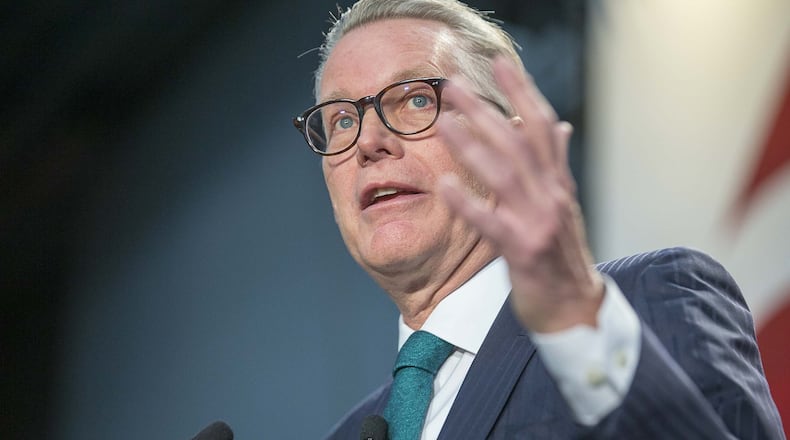Delta Air Lines CEO Ed Bastian is joining the push for an extension of the federal aid that’s helping carriers to ride out billions of dollars in losses due to the coronavirus pandemic.
Airline unions and some carriers have been advocating for Congress to extend CARES Act funding for airlines to cover payroll. Passenger airlines got $25 billion in rescue funds from the bill passed in late March. In accepting the money, the airlines agreed to furlough restrictions that are set to end Sept. 30. Delta got $5.4 billion and applied for access to $4.6 billion more in in federal loans for coronavirus relief.
On a Washington Post livestream interview Monday, Bastian said, “I think everyone in our industry is supportive” of an extension.
“The CARES Act was incredibly successful,” Bastian said.
He said Delta is looking for “a clean extension” meaning another six months of aid, which would include the same restrictions on worker furloughs. “We’d be in full support of that.”
In remarks on NPR’s “All Things Considered” last week, Bastian said he didn’t know the likelihood of airlines receiving more aid. What’s really needed, he said, is for people to start flying again. “Instead of more government support, we need demand back. We need a medical cure. We need a vaccine. We need therapeutics. And I think that’s probably where any government focus ought to go.”
But, with economic recovery stalled as the coronavirus spreads, the push for more federal aid has ramped up.
The Air Line Pilots Association wrote a letter last month urging Congress to extend the Payroll Support Act for airlines through March 31, 2021, “in order to stop preventable mass job loss and ensure pilots and other airline employees can provide the capacity the industry needs to bounce back quickly when the pandemic recedes.”
Delta is cutting its workforce through voluntary measures, including more than 17,000 workers taking buyouts and early retirements and more than 40,000 taking voluntary unpaid leaves.
Other airlines, too, have responded to the pandemic by relying on mostly voluntary measures to cut their workforce. Delta has also cut workers’ hours and total pay.
With non-union flight attendants and ground workers, Delta has “a lot of flexibility” and is working on ways to spread out work among its remaining employees, Bastian said.
Delta flight attendants have been helping to put together snack bags for passengers, for example. And, Bastian said, the airline will have its staff in airport terminals take on work such as pushing wheelchairs and helping with cabin cleaning, duties that are normally handled by contractors.
The issue for pilots — who are more highly paid, unionized and can earn hundreds of thousands of dollars a year — is more difficult, according to Bastian. The company warned some pilots of potential furloughs but is negotiating with its pilots union on other cost cutting measures.
Bastian said the company has brought its costs down more than 50%. “I don’t think we can take our costs down that much lower,” he said. If demand doesn’t improve as much as earlier expected, it could take the airline until the first quarter of next year before it stops burning through millions of dollars a day and reaches a break-even point, he added,
The company has raised capital through financing to build up about $16 billion in reserves and has “the cash and capital to get through the worst of this period of time,” he said.
About the Author
The Latest
Featured



